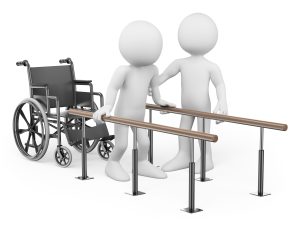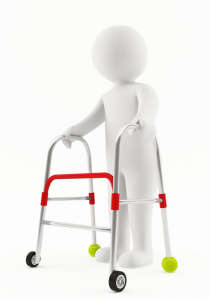 Brain injury rehabilitation refers to the process whereby a specialist multidisciplinary team supports the person to achieve their fullest potential in terms of their physical, psychological, cognitive, communicative, occupational and social functioning. Rehabilitation should be regarded as a continuum, the duration and nature of which will vary considerably depending on the person’s ongoing difficulties and needs. After the initial period of rehabilitation, some people may require further rehabilitation at a later date if they experience a deterioration in their functioning. Deterioration may be precipitated by a number of psychosocial and/or health factors. For example, the person may experience a deterioration in their mental/physical health which may lead to a change in their ability to manage activities of daily living. A change in personal/social circumstances may also result in changes in functioning necessitating further specialist input.
Brain injury rehabilitation refers to the process whereby a specialist multidisciplinary team supports the person to achieve their fullest potential in terms of their physical, psychological, cognitive, communicative, occupational and social functioning. Rehabilitation should be regarded as a continuum, the duration and nature of which will vary considerably depending on the person’s ongoing difficulties and needs. After the initial period of rehabilitation, some people may require further rehabilitation at a later date if they experience a deterioration in their functioning. Deterioration may be precipitated by a number of psychosocial and/or health factors. For example, the person may experience a deterioration in their mental/physical health which may lead to a change in their ability to manage activities of daily living. A change in personal/social circumstances may also result in changes in functioning necessitating further specialist input.


